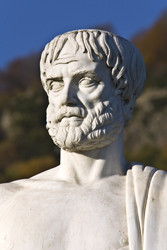Bringing Aristotle to the people in 16th century Italy
During 16th century Italy, translators contributed to the spread of knowledge by translating works into the language of the people, or the vernacular. One such translator was Antonio Brucioli of Florence. The EU-funded project 'Philosophy for the People? Antonio Brucioli as translator of Aristotle in sixteenth- century Italy' (ABRUCIOLI) took a closer look at the translator, reassessing what is known about his life, education and works. The project discovered new texts translated by Brucioli and also corrected the commonly understood chronology of his works. It found that Brucioli largely focused on translating Aristotle's works of natural philosophy, but that he also translated the Bible, Cicero, Pliny and Sacrobosco. ABRUCIOLI also theorised as to why Brucioli translated these works and revealed that the key motivation was practical — i.e. monetary gain. While Brucioli's target market was university students, his reach was unfortunately small during the time. The reason for this is that the translator was tried several times for heresy and his works were prohibited. This led to the theory that an additional motivation for his translations may have been to gain political protection. Not able to meet with much success in Italy, life improved for Brucioli when he moved to France. The project will produce a monograph offering a clearer picture of Brucioli's life. Overall, ABRUCIOLI has generated new knowledge on the translator's contribution to the development of vernacularised works during this period in history.







